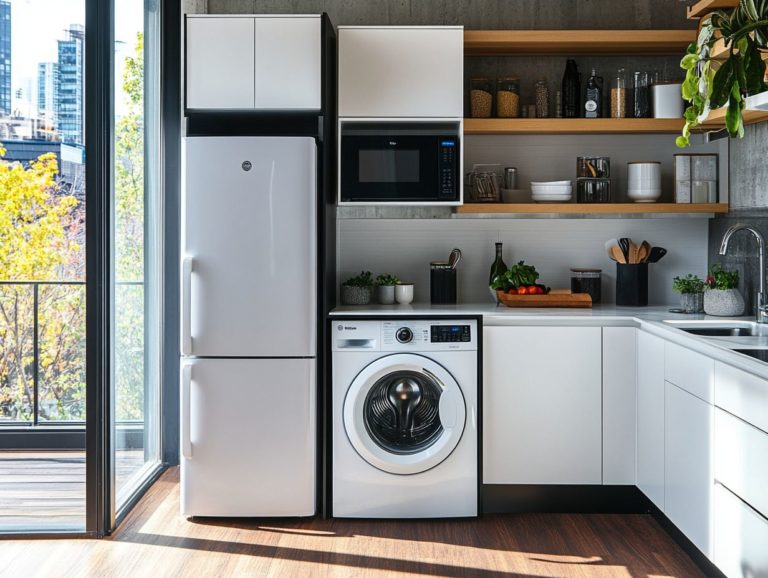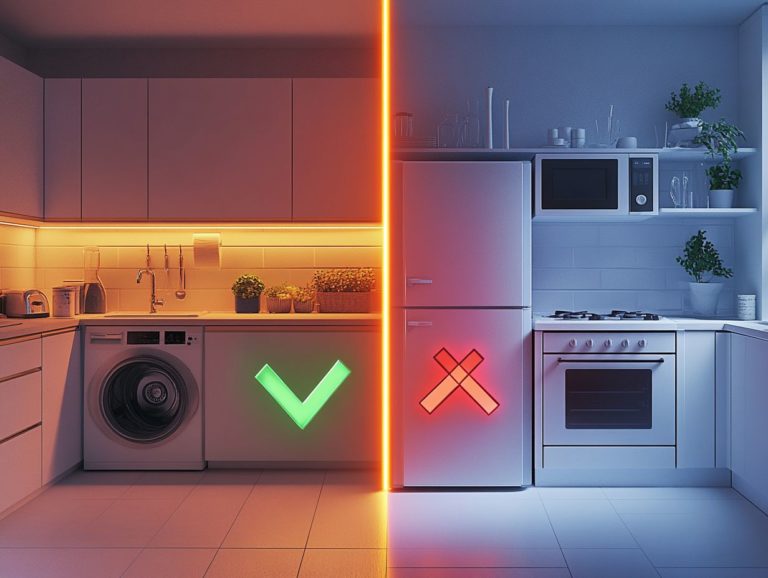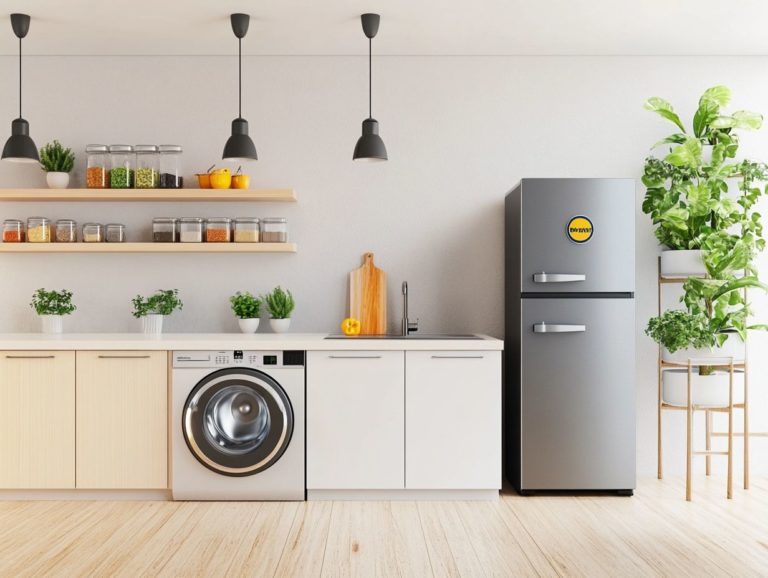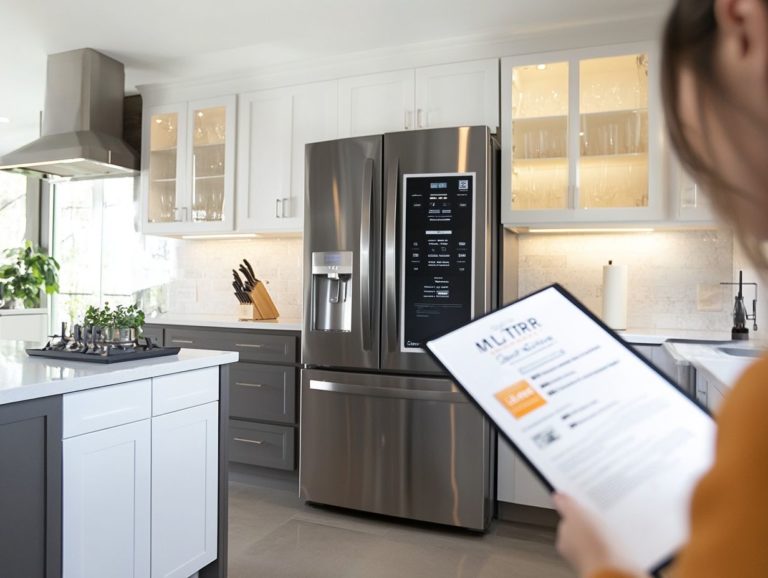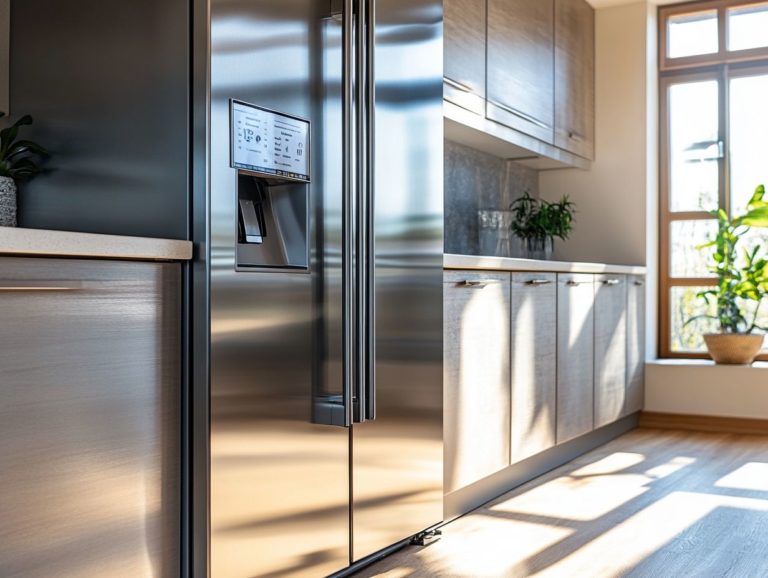Choosing Energy-Efficient Water Heaters
Are you seeking to reduce your energy bills while still enjoying the luxury of hot water at home? Understanding energy efficiency in water heaters is your first step toward making a savvy decision.
This article delves into what defines an energy-efficient water heater, comparing popular models like tankless, heat pump, and solar options. It also highlights crucial factors for you to consider such as size, energy source, and overall costs.
Get ready to discover essential installation and maintenance tips that keep your water heater running smoothly. Explore the content to find the perfect solution tailored for your home!
Contents
Key Takeaways:
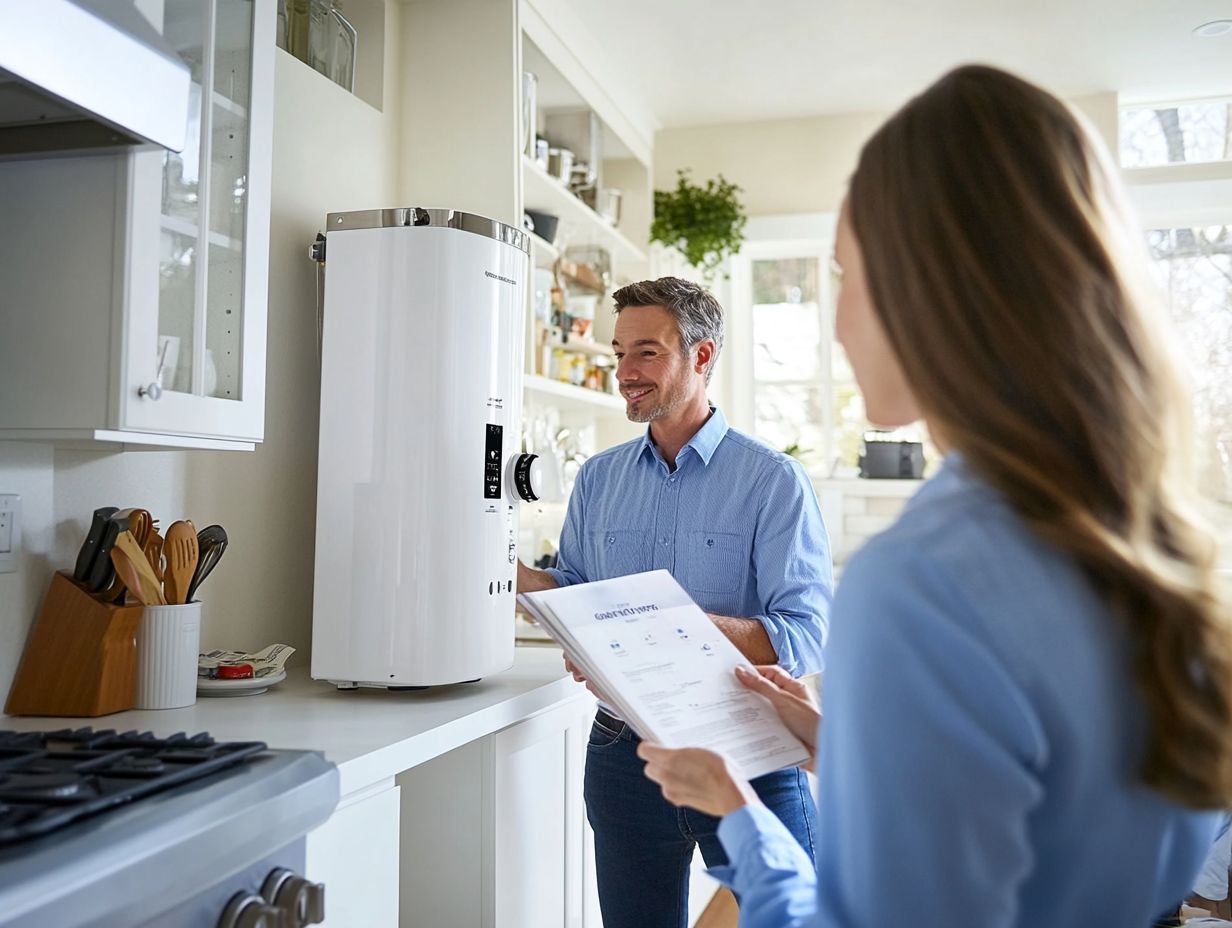
Energy-efficient water heaters can save you money on utility bills while also benefiting the environment. Consider factors such as size, energy source, and cost when selecting the right energy-efficient water heater for your home.
Proper installation techniques and regular maintenance are essential for maximizing the energy efficiency of your water heater.
Understanding Energy Efficiency in Water Heaters
Understanding energy efficiency in water heaters is essential for you as a homeowner. It helps reduce carbon emissions, lower utility bills, and contribute to a low-carbon economy.
By choosing energy-efficient water heaters, you cut down on energy costs and significantly impact the fight against climate change.
These appliances minimize reliance on fossil fuels and reduce greenhouse gases. Your choice is a powerful statement for a sustainable future.
What Makes a Water Heater Energy-Efficient?
An energy-efficient water heater features advanced technology, including an energy-efficient compressor and better water storage tanks. These components are designed to minimize energy consumption while maximizing hot water delivery.
This results in substantial savings on your utility bills. These systems boast high-performance insulation and heat traps that significantly reduce standby heat loss.
Many models come with user-friendly controls, allowing you to easily set and adjust your desired temperatures. This enhances both convenience and energy management.
Investing in an energy-efficient water heater leads to lower bills and supports a more sustainable lifestyle. It’s a savvy choice for both your household budget and the environment.
Types of Energy-Efficient Water Heaters
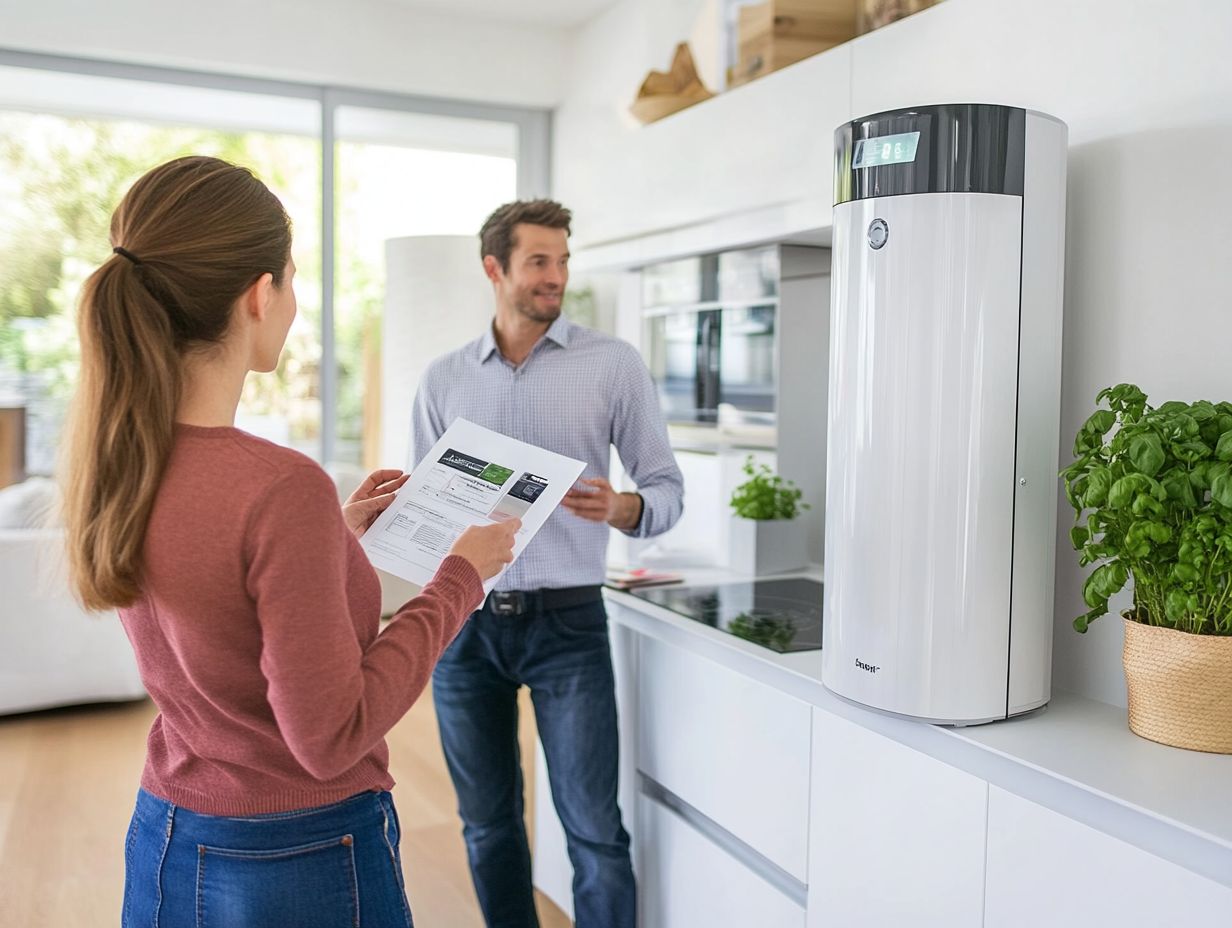
You ll find various energy-efficient water heaters on the market today. Each is meticulously crafted to provide hot water while minimizing energy consumption and environmental impact.
Consider heat pump water heaters that harness ambient temperature for heating or the sleek tankless water heaters that serve up hot water on demand. Solar water heaters tap into renewable energy sources.
Don t overlook hybrid electric heaters, which skillfully blend different technologies to achieve optimal efficiency.
Comparing Tankless, Heat Pump, and Solar Water Heaters
When comparing tankless, heat pump, and solar water heaters, evaluating their energy consumption, efficiency, and overall cost-effectiveness is crucial. This is especially important in tackling environmental challenges like carbon emissions and soaring utility bills.
To make a well-informed decision, dig deeper into how each system operates and the unique benefits they offer.
For example, tankless water heaters heat water on demand, minimizing energy waste while providing an endless supply of hot water.
Heat pump water heaters use electricity to move heat rather than generating it directly, making them impressively energy-efficient. Solar water heaters harness solar energy, giving you a chance to cut down your carbon footprint significantly.
By understanding these distinctions, you can determine which option aligns best with your energy goals and financial situation.
Start saving money and helping the planet today by choosing the right water heater for your home!
Factors to Consider When Choosing an Energy-Efficient Water Heater
When selecting the ideal energy-efficient water heater, you must weigh several important factors.
Consider the size and capacity that best suits your needs, the energy source that aligns with your preferences, and the associated costs and maintenance requirements.
Each of these elements plays a significant role in maximizing energy savings and optimizing your utility bills over time.
Size and Capacity
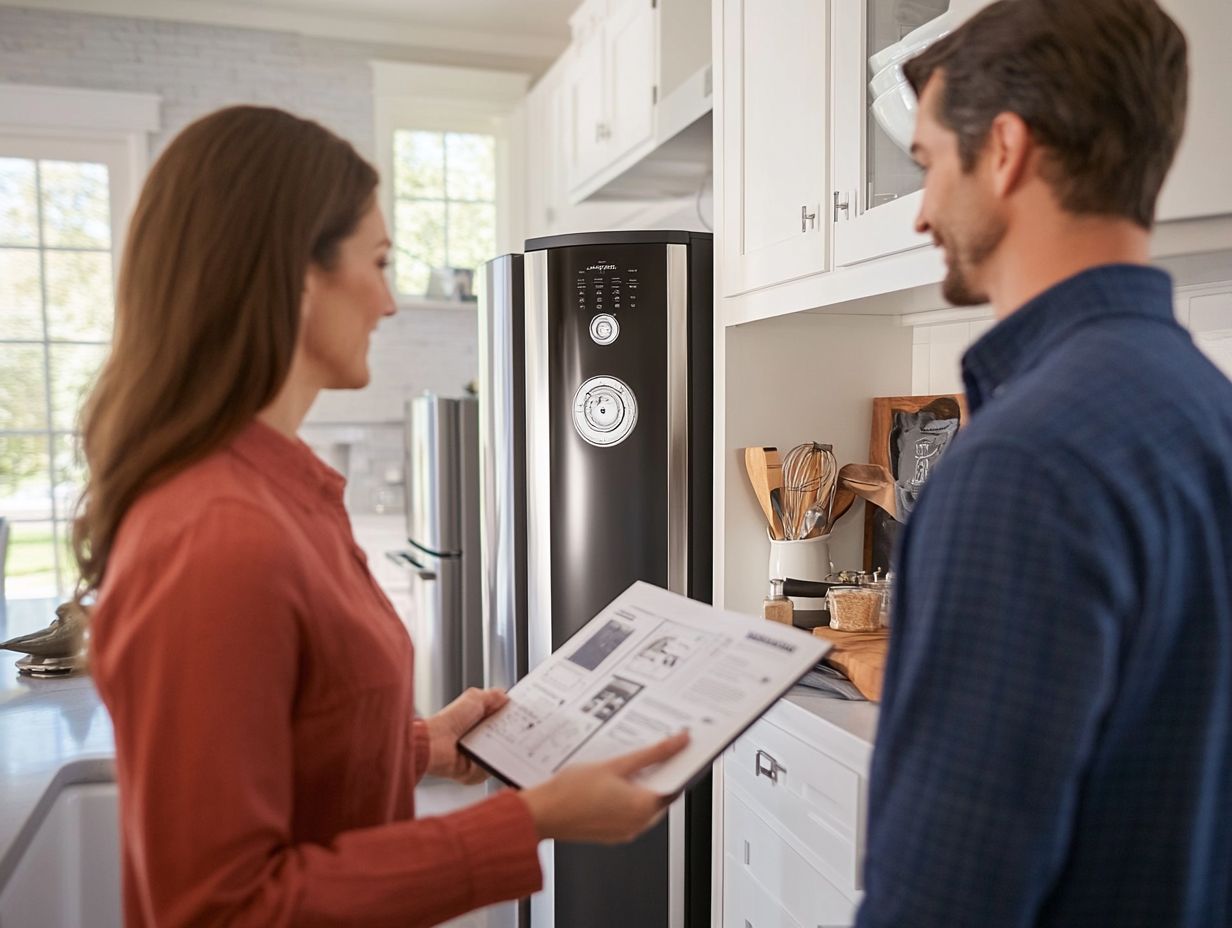
The size and capacity of your water heater are key factors determining its efficiency and effectiveness in meeting your household’s hot water needs. An improperly sized unit can lead to unnecessary energy consumption and inflated utility bills.
Choosing the right energy-efficient water heater not only ensures you have plenty of hot water when you need it but also helps minimize your overall carbon footprint. For more guidance, check out these tips for choosing energy-efficient appliances.
For instance, tankless or on-demand models heat water as it flows, providing convenience without the standby heat loss issues associated with traditional storage tanks.
Understanding your specific capacity requirements based on family size, lifestyle, and peak usage times can significantly improve your heating performance.
By making informed choices about energy-efficient options like heat pump systems, which use outside air to heat your water, or solar water heaters, you can achieve substantial long-term savings while reducing your environmental impact.
Energy Source
The choice of energy source is crucial for the efficiency and environmental impact of your water heater whether you prefer electric resistance, gas water heaters, heat pump systems, or renewable energy solutions.
Each option offers its own set of advantages and drawbacks, affecting your energy consumption, overall expenses, and sustainability.
Electric resistance water heaters are convenient but can lead to higher energy bills due to their significant energy demands. In contrast, gas water heaters often provide faster heating times and lower operational costs, but they contribute to greenhouse gas emissions that worsen climate change.
Heat pump systems, while highly efficient, may require a larger upfront investment. Exploring renewable energy sources, like solar or geothermal heating, can lead to impressive efficiencies and minimal environmental impact. This makes a strong case for embracing more sustainable energy practices!
Cost and Maintenance
Understanding the cost and maintenance aspects of energy-efficient water heaters is crucial for you as a homeowner. The initial investment and ongoing maintenance can significantly influence your savings over time and determine your eligibility for federal tax credits and rebates.
When considering the purchase of a new water heater, it’s essential to evaluate not just the upfront costs but also the long-term savings. Many energy-efficient models can lead to substantial reductions in your monthly utility bills, saving you hundreds of dollars each year!
While these systems may require a larger initial investment, their minimal maintenance needs can make them even more attractive. Don’t forget to explore available federal tax credits and local rebates, which can help offset that initial expenditure, making the upgrade to a more efficient system financially appealing.
By taking all these factors into account, you can make informed decisions that lead to sustainable savings and contribute to a healthier environment.
Installation and Maintenance Tips for Energy-Efficient Water Heaters
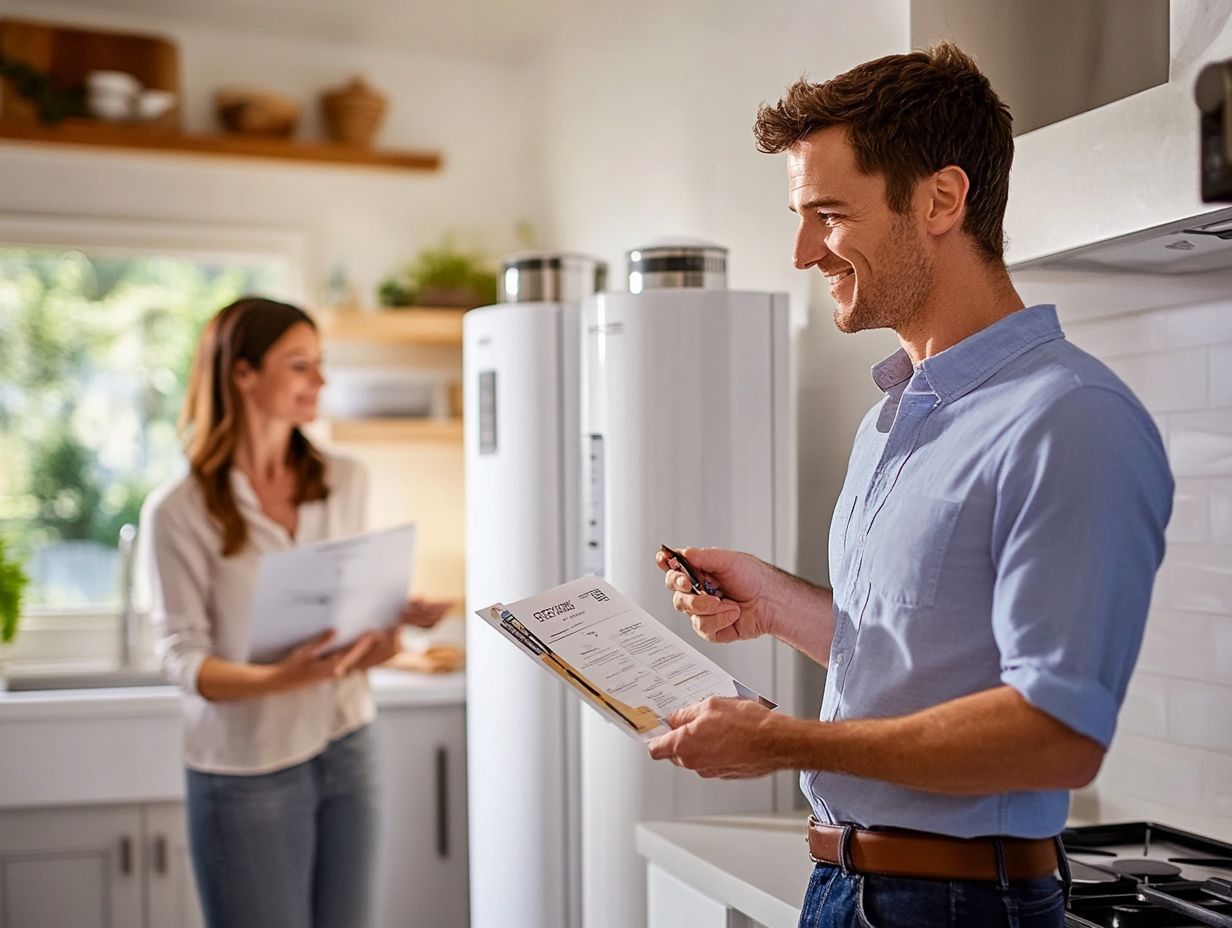
Proper installation and regular maintenance are essential for maximizing the efficiency of energy-efficient water heaters.
By prioritizing these aspects, you ensure optimal performance, extend the lifespan of your unit, and achieve significant energy savings.
This proactive approach can also help minimize the frequency and costs associated with plumbing repairs, allowing for a more seamless and cost-effective experience in the long run!
Proper Installation Techniques
Installing energy-efficient water heaters like heat pumps and tankless units correctly is key to getting the best performance. It also helps to prevent plumbing issues in the future.
Using the right methods during installation boosts the efficiency of these appliances. For heat pumps, ensure they’re in spots with good airflow to reduce heat loss.
Tankless systems must be sized and positioned carefully. This guarantees immediate hot water without straining the system.
Hiring qualified contractors is essential. They know local codes and manufacturer guidelines, ensuring your systems run smoothly and reliably.
Regular Maintenance and Troubleshooting
Regular maintenance keeps energy-efficient water heaters running at peak efficiency. This lets you save on energy costs and avoid expensive plumbing repairs.
Routine inspections catch early signs of wear and inefficiency. Addressing these issues early can save you money in the long run.
Different water heaters, like traditional tanks and modern tankless models, need specific maintenance strategies. Here are some key tasks:
- Check for sediment buildup
- Verify temperature settings
- Examine insulation
These practices not only enhance safety but also extend your unit’s lifespan. A proactive maintenance routine leads to consistent hot water availability and significant cost savings.

